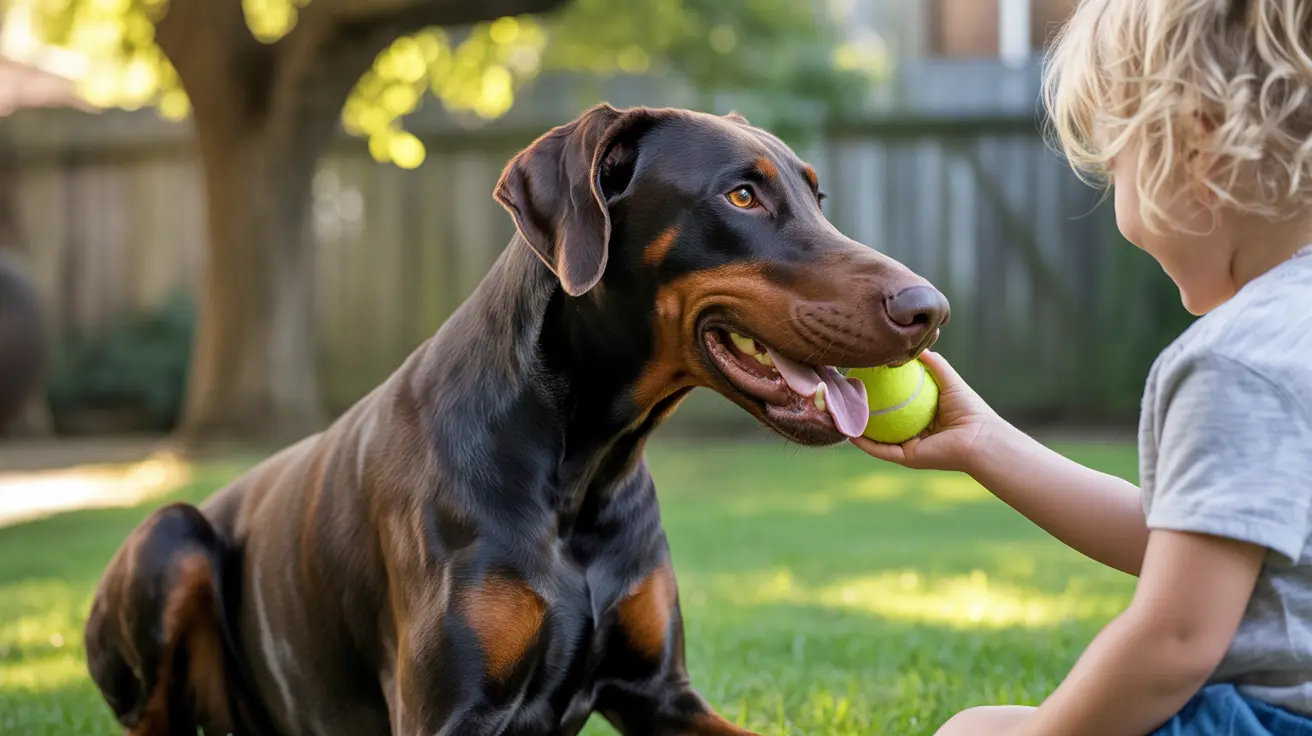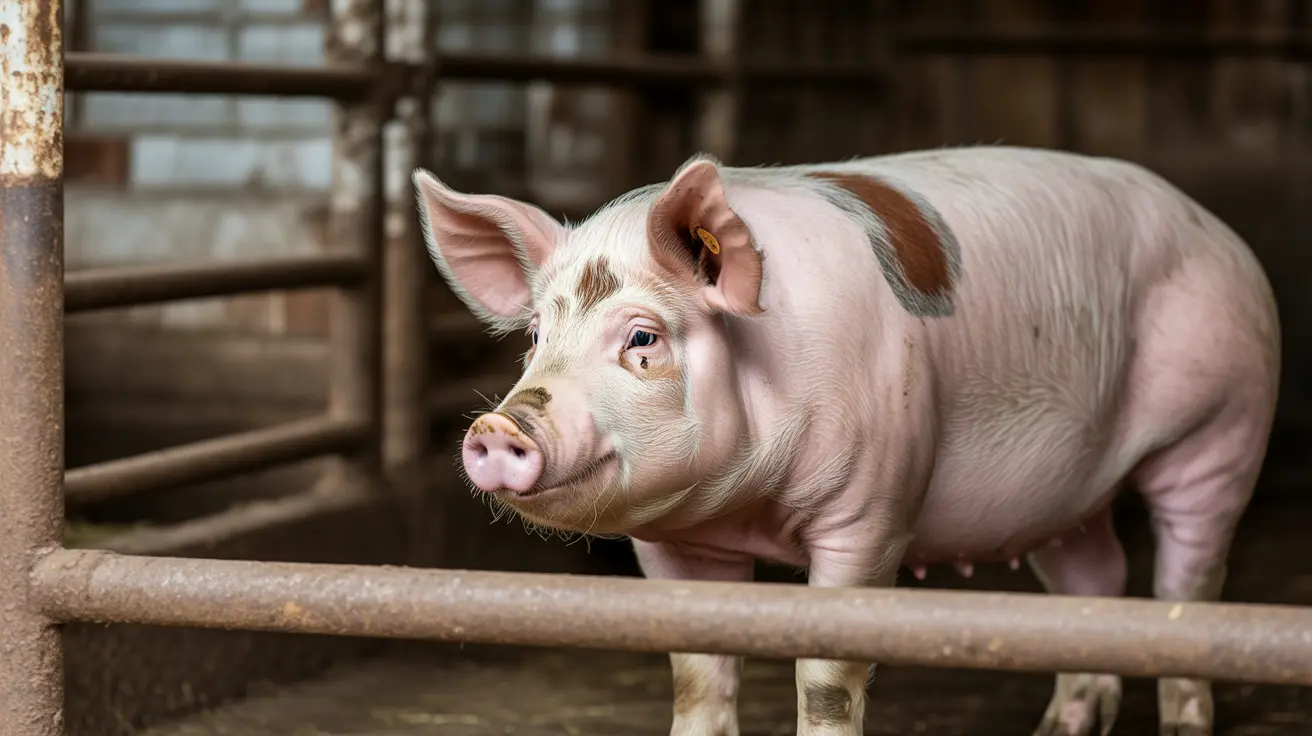If you're considering adding a Doberman to your family, you're likely wondering: are Dobermans good with kids? These intelligent and loyal dogs can make excellent family companions, but their relationship with children requires understanding, proper training, and careful consideration. Let's explore everything you need to know about Dobermans and their compatibility with children.
Understanding Doberman Temperament Around Children
Doberman Pinschers possess a unique combination of traits that can make them wonderful family dogs. Their natural protective instincts, intelligence, and deep loyalty often translate into a gentle and watchful approach to children. When properly socialized, Dobermans typically view children as precious members of their pack, deserving both protection and affection.
However, their strong protective nature means they need clear guidance to understand appropriate behaviors around children. A well-trained Doberman can distinguish between normal child play and potential threats, making them reliable guardians of your little ones.
Early Socialization: The Foundation of Success
The key to raising a child-friendly Doberman lies in early and consistent socialization. Exposing your Doberman to various situations, people, and especially children during their critical developmental period (between 3-16 weeks) helps create a well-adjusted adult dog.
This socialization should include:
- Controlled interactions with children of different ages
- Exposure to typical child behaviors (running, shouting, playing)
- Positive reinforcement during these encounters
- Teaching appropriate responses to excitement
Training Requirements for Family Dobermans
Successful integration of a Doberman into a family with children requires comprehensive training that focuses on:
- Basic obedience commands
- Impulse control
- Gentle play behaviors
- Respecting boundaries
- Calm responses to high-energy situations
Both children and Dobermans need to learn appropriate interaction rules. Children should be taught how to respect the dog's space, while the Doberman must learn gentle play and careful movement around smaller family members.
Managing Energy Levels and Exercise Needs
Dobermans are energetic dogs requiring substantial daily exercise. In families with children, this high energy level can be both a blessing and a challenge. Regular exercise helps prevent destructive behaviors and ensures your Doberman remains calm and controlled around children.
Consider these exercise options:
- Daily walks or jogs
- Structured play sessions
- Agility training
- Interactive games that include both children and dog
Safety Guidelines for Dobermans and Children
While Dobermans can be excellent with kids, certain safety measures are essential:
- Never leave young children unsupervised with any dog, including Dobermans
- Establish quiet spaces where your dog can retreat when needed
- Teach children to respect the dog's food, toys, and resting areas
- Monitor all interactions, especially during high-energy play
- Ensure your Doberman receives regular veterinary care and exercise
Frequently Asked Questions
Are Doberman Pinschers safe and good with children of all ages?
Dobermans can be safe and excellent with children of all ages when properly trained and socialized. However, they tend to do better with older children who can understand and respect dog boundaries. Adult supervision is always necessary, especially with younger children.
How important is early socialization and training for Dobermans living with kids?
Early socialization and training are crucial for Dobermans living with children. These experiences shape their behavior and responses to various situations, helping them become well-adjusted family members who understand appropriate interactions with kids.
What safety precautions should families take when Dobermans interact with toddlers and young children?
Key safety precautions include constant supervision, teaching both children and dogs appropriate boundaries, providing the dog with escape routes, and never leaving young children alone with the dog. Creating structured interaction times and safe spaces for both parties is essential.
Can Doberman puppies be raised in homes with small children, or is that risky?
While it's possible to raise Doberman puppies with small children, it requires extra caution and supervision. Puppies can be mouthy and energetic, potentially overwhelming or accidentally hurting small children. Adult Dobermans with known temperaments might be better choices for families with very young children.
How can families manage a Doberman's high energy and protective instincts around kids?
Families can manage these traits through regular exercise, consistent training, and clear boundaries. Providing structured outlets for energy, teaching appropriate protective behaviors, and maintaining a regular routine helps balance these natural instincts with family life.
Conclusion
With proper training, socialization, and management, Dobermans can indeed be excellent companions for families with children. Their loyalty, intelligence, and protective nature make them valuable family members when their needs are met and appropriate boundaries are maintained. Success lies in understanding the breed's characteristics and committing to the training and supervision necessary for a harmonious relationship between your Doberman and children.






